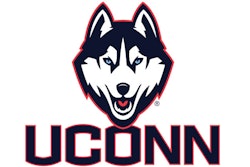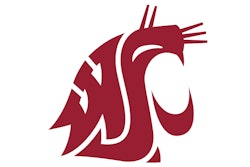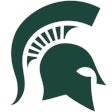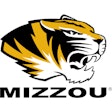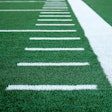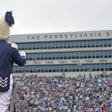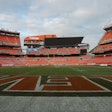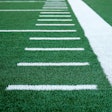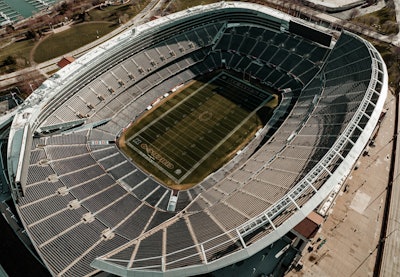
The Chicago Bears' announcement Monday that they plan to help build a publicly owned stadium along Lake Michigan raised questions, as taxpayers still owe hundreds of millions of dollars on the team's existing long-time home, Soldier Field.
As reported by NBC affiliate WMAQ, Bears president Kevin Warren confirmed that the team intends to invest more than $2 billion of private funding into the project, but it will likely cost much more than that — with the proposed domed stadium likely in the neighborhood of $3 billion, not including development of the surrounding area.
Related: Sources: Bears to Invest $2B in Domed Stadium South of Soldier Field
The plan would increase public space in the area by 20 percent, an effort likely aimed at placating Friends of the Parks, an advocacy group that has previously voiced opposition to private development on the lakefront, WMAQ's Shelby Bremer reported.
It was still unknown how much the project will cost in total, and how much the Bears will ask for in public funding.
Some cast doubt on the appetite for public funding, given the unanswered questions. Complicating matters is the fact Chicago White Sox chairman Jerry Reinsdorf has asked state lawmakers for $1 billion in state funding for a new stadium for his team.
Related: White Sox, Bears Discussing 'Financing Partnership' for Respective Stadiums
“We are literally at the throwing spaghetti against the wall stage of all of this conversation about stadiums, two: White Sox and the Bears, individually and together,” said Civic Federation president Joe Ferguson.
“What’s the overall expense of all of this? What are we actually doing?” Ferguson asked. “How much are the taxpayers on the hook? How is it that we ultimately would be addressing the more than half billion dollars that is outstanding?”
To be exact, taxpayers still owe more than $589 million on the 2002 renovation of Soldier Field. For that project, the Bears and the NFL kicked in a combined $200 million. The Illinois Sports Facilities Authority issued bonds for the remaining $398 million, backed by Chicago’s 2 percent hotel tax, Bremer reported.
But because of the way the deal was structured — and several refinancing rounds later — the ISFA now owes $375 million in principal and $214 million in interest on those bonds, as the Bears prepare to ask state lawmakers for another cash infusion to construct a new home.



















